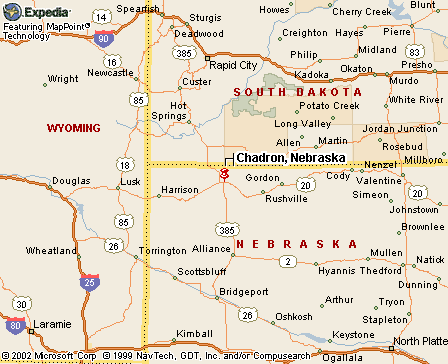|
|
Canku Ota |
|
|
(Many Paths) |
||
|
An Online Newsletter Celebrating Native America |
||
|
May 4 , 2002 - Issue 60 |
||
|
|
||
|
Mankiller: Leaders Needed |
||
|
by Chadron State
College
|
||
|
|
 CHADRON,
NE - According to the first woman chief of a major American Indian
tribe, good leaders possess four qualities - they are compassionate,
positive, able to get things done and good listeners. CHADRON,
NE - According to the first woman chief of a major American Indian
tribe, good leaders possess four qualities - they are compassionate,
positive, able to get things done and good listeners.
Wilma Mankiller, former principal chief of the Cherokee Nation in Oklahoma, spoke Wednesday at Chadron State College in the final lecture of the 2001-2002 Distinguished Speaker Series. She said members of American Indian tribes must realize "no one is going to help us but ourselves." "We must define for ourselves what it means to be Cherokee, what it means to be Lakota, what it means to be Omaha in the 21st century and then hold on to it," Mankiller said. "If we care about our survival, we are going to have to learn more about ourselves as a people and be willing to step up to a leadership role." Mankiller was elected deputy chief of the Cherokee Nation in 1983. She ran for and won the position of principal chief in 1987 and 1991. Looking back on her years in leadership, Mankiller said that rather than following their own agenda, good leaders listen to the people and make things happen. "If you don't have compassion for people, I don't see how you can lead," Mankiller said. "Good leaders look at a barrier or a problem and see it as a challenge. They say, ‘I'm not going to let this barrier stop me. I'm going to go over it, or I'm going to go around it, or I'm going to go under it, but I am not going to let this barrier stop me.'" Mankiller said she grew up in a rural, traditional Cherokee village in Oklahoma. Her family of 12 did not have electricity or indoor plumbing. Although outsiders often saw poverty in her village, she said she saw neighbors helping each other. "To this day, I still have that image of what it means to be a part of a vibrant community where everybody is interconnected and helping each other," she said. When she was 10 years old, Mankiller's family moved to San Francisco as part of the Bureau of Indian Affairs relocation program, a program she called a "disaster." The better life promised by the BIA led to life in a rough housing project. Mankiller said she found solace at San Francisco Indian Center, where she became an active member and volunteer, and found role models who would help shape her future. Eventually, she went to college and began to work as an advocate for American Indian rights. Mankiller said she never really felt whole until she returned to Oklahoma in 1977. She began working for the tribal government, and by 1982, she was director of community development. The principal chief asked her to run for deputy chief in 1983. She turned him down. But after a trip through a poor, rural area, Mankiller said she realized that if she didn't run, she would have no right to complain. "Every time I stepped into a leadership role, I did it because I cared more about the issue than I cared about what people would think about me," Mankiller said. "I think that it is really important to get beyond your personal thoughts and just focus on the issues." |
|
|

|
www.expedia.com |
|
|
||
|
|
||
| Canku Ota is a free Newsletter celebrating Native America, its traditions and accomplishments . We do not provide subscriber or visitor names to anyone. Some articles presented in Canku Ota may contain copyright material. We have received appropriate permissions for republishing any articles. Material appearing here is distributed without profit or monetary gain to those who have expressed an interest. This is in accordance with Title 17 U.S.C. Section 107. | ||
|
Canku Ota is a copyright © 2000, 2001, 2002, 2003 of Vicki Lockard and Paul Barry. |
||
 |
 |
|
|
The "Canku Ota - A Newsletter Celebrating Native America" web site and its design is the |
||
|
Copyright © 1999, 2000, 2001, 2002, 2003 of Paul C. Barry. |
||
|
All Rights Reserved. |
||